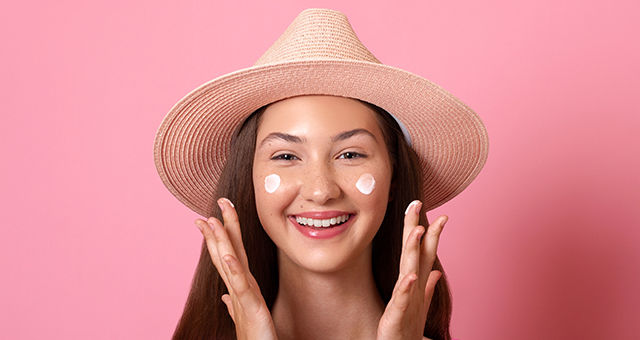
Finding the best sunscreen for oily skin can be a real challenge. People with oily skin often struggle with greasy, shiny faces, especially in hot and humid weather. Adding sunscreen to your daily routine can sometimes make it worse, as many sunscreens are thick and heavy. But using best sunscreen for oily skin is not optional—it protects your skin from sun damage, aging, and even skin cancer. The good news is that there are sunscreens made just for oily skin. In this article, we’ll help you understand what to look for and how to choose the best one for your skin type.
Why Sunscreen Is Important for Oily Skin
Many people with oily skin think they don’t need sunscreen or avoid it because it makes their skin oilier. But skipping sunscreen can lead to serious problems. UV rays from the sun can cause sunburn, dark spots, early wrinkles, and increase the risk of skin cancer. Using the right sunscreen protects your skin without causing breakouts or extra shine.
What to Look for in Sunscreen for Oily Skin
When choosing a sunscreen for oily skin, here are some features to look for:
-
Oil-free formula: Avoid products that contain oils. These can clog pores and lead to more breakouts.
-
Non-comedogenic: This means the product won’t clog your pores.
-
Matte finish: Look for sunscreens that offer a matte or powdery finish to reduce shine.
-
Lightweight texture: Gels, fluids, or water-based lotions work better than creams.
-
Broad-spectrum protection: Choose a sunscreen that protects against both UVA and UVB rays.
-
SPF 30 or higher: This is the minimum SPF recommended by dermatologists.
Types of Sunscreen for Oily Skin
There are two main types of sunscreens:
-
Chemical Sunscreens: These absorb UV rays and turn them into heat. They are usually lighter and less visible on the skin. Some may cause irritation, so test them first.
-
Mineral Sunscreens: These sit on top of the skin and reflect UV rays. They often contain zinc oxide or titanium dioxide. Mineral sunscreens are great for sensitive and acne-prone skin but can sometimes leave a white cast.
Benefits of Using the Right Sunscreen
Here are the main benefits of using sunscreen made for oily skin:
-
Controls shine: Many sunscreens for oily skin are made to reduce extra oil on your face.
-
Prevents acne: Non-comedogenic products help keep your pores clean and clear.
-
Reduces dark spots: Sunscreen helps prevent sunspots and discoloration.
-
Fights aging: Daily sunscreen use slows down the signs of aging like wrinkles and fine lines.
How to Apply Sunscreen on Oily Skin
Applying sunscreen correctly is just as important as choosing the right one. Follow these steps:
-
Clean your face: Use a gentle cleanser to remove oil and dirt.
-
Apply moisturizer: If your skin is oily, use a lightweight, oil-free moisturizer.
-
Use sunscreen: Apply sunscreen as the last step before makeup. Use about a teaspoon for your face and neck.
-
Reapply every 2 hours: If you’re outside or sweating, reapply more often.
Common Mistakes to Avoid
People with oily skin often make mistakes when using sunscreen. Here are some to avoid:
-
Skipping sunscreen on cloudy days: UV rays can still harm your skin when it’s cloudy.
-
Not using enough: A small amount won’t give you full protection.
-
Using expired sunscreen: Sunscreen loses its power over time. Check the expiry date.
-
Using sunscreen with alcohol: Some products contain alcohol that dries out the skin and causes more oil production later.
Ingredients to Look For
Some ingredients work well for oily skin and help keep your face fresh and protected:
-
Niacinamide: Helps balance oil and improve skin texture.
-
Zinc oxide: A mineral that calms the skin and controls oil.
-
Silica: Absorbs excess oil and gives a matte finish.
-
Green tea extract: Reduces inflammation and protects skin cells.
Sunscreen in Daily Skincare Routine
Make sunscreen a regular part of your skincare routine. Apply it every morning after washing your face and using moisturizer. If you wear makeup, apply sunscreen before foundation. There are also sunscreens available in powder or stick form that make reapplying easy during the day.
Best Time to Use Sunscreen
The best time to apply sunscreen is 15 to 30 minutes before going outside. This gives your skin time to absorb it and start working. Reapply after two hours or after swimming, sweating, or wiping your face.
Tips for Oily Skin in Summer
Summer can make oily skin worse. Here are a few extra tips to keep your skin fresh:
-
Use blotting paper: Carry them with you to remove excess oil.
-
Drink water: Staying hydrated helps balance your skin’s oil production.
-
Avoid heavy makeup: Use light, oil-free products that don’t clog your pores.
-
Keep your skin clean: Wash your face twice a day with a mild face wash.
Final Thoughts
Sunscreen is a must for everyone, including people with oily skin. The key is finding the right product that protects your skin without making it greasy. Choose a sunscreen that is lightweight, oil-free, and offers a matte finish. Apply it every day, even if it’s cloudy or you’re indoors near a window. Taking care of your skin now can prevent major problems later. With the right sunscreen, your oily skin can stay healthy, protected, and shine-free.
Comments on “Best Sunscreen for Oily Skin That Keeps You Shine-Free All Day”